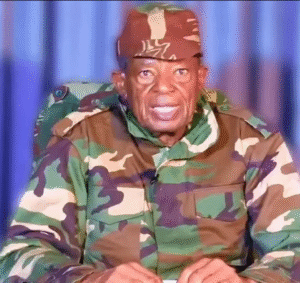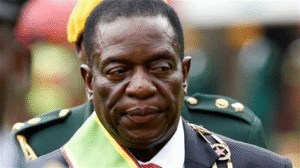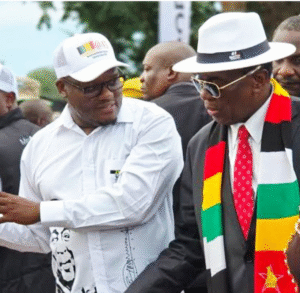DEMOCRACY AT STAKE: THE SHRINKING FREEDOM IN ZIMBABWE’S PATH TO THE 2023 ELECTIONS

In the build-up to the highly anticipated 2023 elections, Zimbabwe finds itself in the midst of a concerning trend: the shrinking democratic space. As the country strives for progress and political stability, the erosion of fundamental freedoms and democratic principles raises alarming questions about the fairness and transparency of the upcoming electoral process.

One of the most pressing issues is the crackdown on freedom of expression and the stifling of dissenting voices. Journalists, activists, and opposition figures face increasing intimidation, harassment, and arbitrary arrests. The space for open dialogue and critical engagement is narrowing, as the government tightens its grip on power and suppresses any form of dissent.
The use of repressive laws to silence opposition voices has become a common tactic employed by the authorities. Legislation such as the Public Order and Security Act (POSA) and the Access to Information and Protection of Privacy Act (AIPPA) are wielded as tools to suppress freedom of assembly, association, and access to information. These laws not only hinder the functioning of civil society organizations but also restrict the ability of opposition parties to mobilize and connect with citizens.
Another alarming trend is the weaponization of state institutions for political purposes. The judiciary, meant to be an impartial arbiter, is increasingly viewed as partisan, with allegations of judicial bias and lack of independence. This undermines public trust in the judicial system and raises concerns about the fairness of legal proceedings, particularly in cases involving political figures.
Furthermore, the electoral environment itself has come under scrutiny. Reports of voter intimidation, gerrymandering, and manipulation of the electoral process have raised doubts about the integrity of the upcoming elections. The independence and impartiality of the Zimbabwe Electoral Commission (ZEC) have been questioned, fueling fears of potential electoral malpractice and a skewed playing field.
The shrinking democratic space not only hampers the credibility of the electoral process but also threatens the principles upon which democracy is built. The right to vote, freedom of expression, and the ability to participate in political processes are fundamental pillars of a democratic society. When these pillars are weakened, the very essence of democracy is compromised.
It is crucial for international bodies, regional organizations, and civil society to closely monitor the situation and apply pressure on the Zimbabwean government to uphold democratic principles. The international community must call for the repeal of repressive laws and the creation of an environment that allows for free and fair elections. In addition, support should be provided to local civil society organizations, independent media, and human rights defenders who work tirelessly to protect democratic values.
The path towards the 2023 elections in Zimbabwe is fraught with challenges, but it is not without hope. The citizens of Zimbabwe, with their resilience and determination, have the power to demand change and safeguard their democratic rights. The international community must stand in solidarity with them, supporting their efforts to reclaim the democratic space and ensure that the upcoming elections are a true reflection of the will of the people.
As Zimbabwe heads towards the 2023 elections, the world watches closely. The fate of democracy hangs in the balance, and the choices made in the coming months will shape the country’s future. Will Zimbabwe rise above the challenges and restore its democratic ideals, or will the shrinking democratic space persist, casting a shadow over the legitimacy of the electoral process? The time for action is now, as the people of Zimbabwe fight to reclaim their voice and their right to a truly democratic nation.



